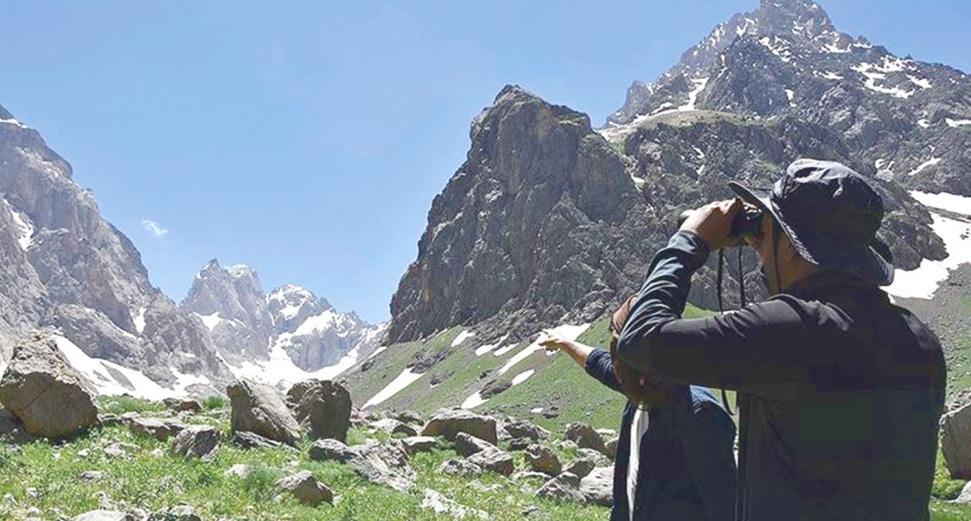The Majestic Mountains of Kurdistan
Kurdistan, often referred to as the "Land of Mountains," is characterized by its rugged, mountainous terrain. These mountains have played a crucial role in shaping Kurdish history, culture, and way of life. They have served as natural fortresses, providing protection and influencing the development of distinct Kurdish communities.
Key Facts about Kurdistan's Mountains
- The mountains cover approximately 65% of Kurdistan's total land area
- They are part of the larger Zagros and Taurus mountain ranges
- The highest peak is Mount Cilo (Cilo Dağı) at 4,168 meters (13,674 ft)
- These mountains are rich in biodiversity and natural resources
- Many important rivers, including the Tigris and Euphrates, originate in these mountains
Major Mountain Ranges
The mountains of Kurdistan are primarily part of two major mountain ranges:
- Zagros Mountains: Stretching from southeastern Turkey through northern Iraq and into Iran
- Taurus Mountains: Located mainly in southern Turkey, forming the southern edge of the Anatolian Plateau



Significant Mountains and Peaks
| Mountain/Peak | Height | Location | Significance |
|---|---|---|---|
| Mount Cilo (Cilo Dağı) | 4,168 m (13,674 ft) | Hakkari Province, Turkey | Highest peak in the Cilo-Sat range |
| Mount Ararat (Ağrı Dağı) | 5,137 m (16,854 ft) | Ağrı Province, Turkey | Legendary resting place of Noah's Ark |
| Qandil Mountains | 3,587 m (11,768 ft) | Iraq-Iran border | Strategic importance in recent Kurdish history |
| Mount Halgurd | 3,607 m (11,834 ft) | Erbil Governorate, Iraq | Highest mountain entirely within Iraq |
| Mount Pir Omar Gudrun | 2,611 m (8,566 ft) | Sulaymaniyah Governorate, Iraq | Important for its biodiversity |
Ecological Importance
The mountains of Kurdistan are of great ecological importance:
- Biodiversity: Home to numerous plant and animal species, some endemic to the region
- Water Resources: Act as water towers, feeding major rivers and supplying water to the surrounding regions
- Climate Regulation: Influence local and regional climate patterns
- Natural Resources: Rich in minerals, forests, and pastures
Cultural Significance
Mountains hold a special place in Kurdish culture and identity:
- Often featured in Kurdish folklore, poetry, and music
- Traditionally provided refuge during times of conflict
- Shaped traditional Kurdish lifestyles, including pastoral nomadism
- Many mountains are considered sacred or have religious significance
Did You Know?
The Kurdish saying "No friend but the mountains" reflects the historical importance of mountains as protectors and allies of the Kurdish people.
Economic Importance
The mountains of Kurdistan play a significant role in the region's economy:
- Tourism: Increasing popularity for mountain tourism and winter sports
- Agriculture: Terraced farming and high-altitude pastures for livestock
- Natural Resources: Mining of various minerals and extraction of oil
- Water Resources: Hydroelectric power generation and irrigation
Environmental Challenges
Despite their importance, Kurdistan's mountains face several environmental challenges:
- Deforestation due to logging and agricultural expansion
- Soil erosion and landslides
- Climate change impacts, including altered precipitation patterns and glacial retreat
- Overgrazing in some areas
- Pollution from mining and oil extraction activities
Conservation Efforts
Various initiatives are underway to protect and conserve Kurdistan's mountain ecosystems:
- Establishment of protected areas and national parks
- Reforestation projects
- Sustainable tourism development
- Research programs to study and monitor mountain ecosystems
- Community-based conservation initiatives
Conclusion
The mountains of Kurdistan are not just geographical features; they are an integral part of Kurdish identity, history, and culture. These majestic ranges have shaped the Kurdish way of life for millennia and continue to play a crucial role in the region's ecology, economy, and cultural landscape. As Kurdistan faces the challenges of modernization and environmental change, the conservation and sustainable management of these mountain ecosystems remain vital for the future of the region and its people.



